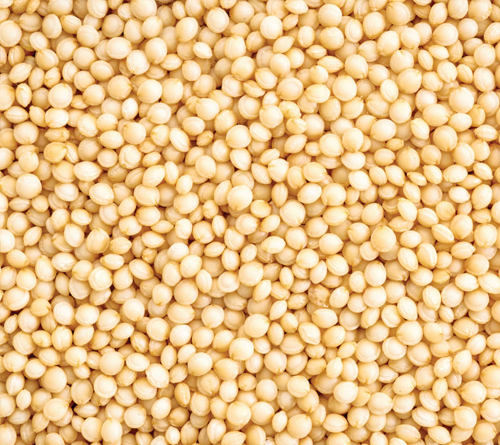PROTEIN POORAK has superfoods Quinoa, Flaxseed, and Chia seed. Together these superfoods provide protein, fibre, essential fatty acids (good fat) and vitamins and minerals.

Chia seeds are not only rich in nutrients, omega-3 fat, antioxidants and fibre but also easy to prepare. People commonly add them to their porridge or smoothies. Studies suggest that they have various health benefits, ranging from weight loss to reduced inflammation.

When it comes to nutritional goodness, flax seeds are full of it. Though tiny, they are rich in the omega-3 fatty acid ALA, lignans, and fibre, all of which have been shown to have many potential health benefits. They can be used to improve digestive health, lower blood pressure, and bad cholesterol, reduce the risk of cancer, and may benefit people with diabetes.

Quinoa is high in protein compared to most plant foods. It also contains all the essential amino acids that you need, making it an excellent protein source for vegetarians and vegans. Quinoa contains large amounts of flavonoids, including quercetin and kaempferol. These are potent plant antioxidants with numerous health benefits. Rich in fiber, minerals, antioxidants and all nine essential amino acids, quinoa is one of the healthiest and most nutritious foods on the planet. It may improve blood sugar and cholesterol levels and even aid weight loss. What's more, it's naturally gluten-free, delicious.

Amaranth is an ancient grain with impressive health benefits. It has been cultivated for over 8,000 years. It's versatile, this nutritious grain is naturally gluten-free and rich in protein, fiber, micronutrients, and antioxidants. It's a good source of magnesium, manganese, phosphorous, iron, selenium, and copper. It is high in phenolic acids and may help protect against diseases like cancer and heart disease. It could also help in reducing inflammation and lower cholesterol levels. It could also help with weight loss.




Millets (Finger Millet – Ragi, Foxtail Millet – Navane, Browntop Millet – Korle); Lentils and Pulses (Horse Gram – ¬Hurali, Green Gram – Mung, Bengal Gram – Channa); Super Foods (Quinoa, Chia Seed, Flax Seed); Amaranth (Rajgira Grains); Nuts (Almonds, Cashews, Walnuts, Pistachios); Spices (Fenugreek Seed, Caraway Seed, Cardamom, Nutmeg, Clove, Black Pepper, Cinnamon, Saffron); Dry Dates and Jaggery; Edible Guar Gum, and Edible Acacia Gum.